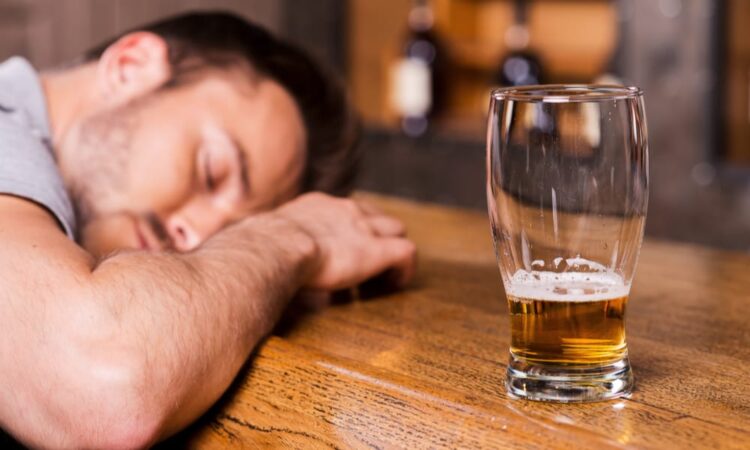By Samantha Jones-
Members of the British public have been urged to avoid getting drunk or taking part in “risky activities” on Wednesday because strike-hit NHS ambulance services may not be able to treat them.
The warning follows a nation wide strike by thousands of paramedics and other personnel in NHS ambulance services across England for between 12 and 24 hours on Wednesday, leaving the NHS unable to respond to many of the 999 calls it usually receives.
On Tuesday, NHS bosses and a government health minister advised people to behave in a “sensible” way during the strike in order to avoid ending up needing to go to A&E so that ambulance services can concentrate on helping those in greatest medical need.
The festive period particularly leads to a lot of drinking right across the Uk and many parts of the world which can lead to fights and people falling over due to excessive drinking.
Sir Stephen Powis, NHS England’s medical director, said: ‘There is no doubt that the NHS is facing extreme pressure.
‘Industrial action will add to the already record demand we are seeing on urgent and emergency care, and so it is really important that the public play their part by using services wisely.
‘This means continuing to call 999 for life-threatening emergencies – if it is not life-threatening you may have to wait longer than usual for an ambulance.
‘And using 111 online for other health needs where you will receive clinical advice on the best next steps to take.
Sir Stephen Powis, NHS England’s medical director, said: ‘There is no doubt that the NHS is facing extreme pressure.
‘Industrial action will add to the already record demand we are seeing on urgent and emergency care, and so it is really important that the public play their part by using services wisely.
‘This means continuing to call 999 for life-threatening emergencies – if it is not life-threatening you may have to wait longer than usual for an ambulance.
‘And using 111 online for other health needs where you will receive clinical advice on the best next steps to take.
Sir Stephen Powis, NHS England’s medical director, said: ‘There is no doubt that the NHS is facing extreme pressure.
‘Industrial action will add to the already record demand we are seeing on urgent and emergency care, and so it is really important that the public play their part by using services wisely.
‘This means continuing to call 999 for life-threatening emergencies – if it is not life-threatening you may have to wait longer than usual for an ambulance.
‘And using 111 online for other health needs where you will receive clinical advice on the best next steps to take.
Sir Stephen Powis, NHS England’s medical director, said: ‘There is no doubt that the NHS is facing extreme pressure.
‘Industrial action will add to the already record demand we are seeing on urgent and emergency care, and so it is really important that the public play their part by using services wisely.
‘This means continuing to call 999 for life-threatening emergencies – if it is not life-threatening you may have to wait longer than usual for an ambulance.
‘And using 111 online for other health needs where you will receive clinical advice on the best next steps to take.
Prof Sir Stephen Powis, NHS England’s national medical director, asked the public to ring 999 only if it involved a life-threatening emergency and instead to call the 111 telephone advice service.
“But people can also help by taking sensible steps to keep themselves and others safe during this period and not ending up in A&E, whether that is drinking responsibly or checking up on a family member or neighbour who may be particularly vulnerable to make sure they are OK,” said Powis.
Will Quince, a health minister, urged people to play their part in reducing the pressure on overstretched NHS services by not engaging in “risky activities”, in case they got injured.
“Where people are planning any risky activity, I would strongly encourage them not to do so because there will be disruption on the day,” he told BBC Breakfast.
Downing Street declined to specify what pursuits Quince meant. But the minister clarified to BBC Radio 5 Live that “if there is activity that people are undertaking tomorrow, whether it’s, for example, contact sport, they may want to review that.”
Asked if people should still go running, he replied that that was not a “hugely risky” activity. But, he added: “Would I go running tomorrow if it was still icy? No I wouldn’t, because that would encompass additional risk.”.
Talks were continuing on Tuesday between the health secretary, Steve Barclay, and Unison, Unite and the GMB, the three unions whose members in ambulance services will be on strike.
Unions and NHS bosses have already agreed that ambulance crews will respond to all “life or limb” category one calls, which involve patients who are at immediate risk of dying, for example because they are in cardiac arrest or have stopped breathing.
Thousands of nurses also staged strikes on Tuesday across England, Wales and Northern Ireland for the same reason.




